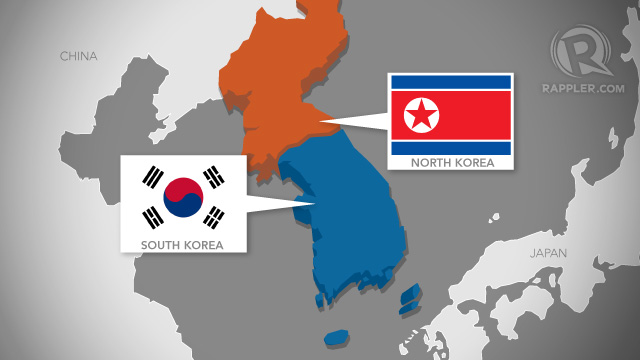
SEOUL, South Korea (UPDATED) – Two days of rare, high-level talks between North and South Korea aimed at easing cross-border tensions broke up on Saturday, December 12, with no agreement and no set date for further discussions.
South Korea's chief delegate, Hwang Boo-Gi, suggested North Korean intransigence over what issues could be discussed had contributed to the failure of the meeting in the jointly-run Kaesong industrial zone.
He also said it was Pyongyang who had rejected the idea of resuming the dialogue next week.
The vice-minister-level talks, with a mandate to address a broad but unspecified range of inter-Korean issues, were the first of their type for nearly two years.
While no substantial breakthrough had been expected, there had been hopes of some tangible progress with both sides seeking the resumption of stalled cooperation projects that have significant symbolic and financial value.
The cash-strapped North wanted the South to resume lucrative tours to its scenic Mount Kumgang resort, which Seoul suspended in 2008 after a female tourist was shot dead by a North Korean guard.
South Korea, meanwhile, wanted the North to agree to regular reunions for families separated by the Korean War. (READ: Traumatic final farewell for reunited Korean families)
Speaking to reporters at the talks venue, Hwang said the North Korean side had insisted on linking the two issues and making a resolution of the Mount Kumgang question a pre-condition for discussing the reunions.
"They insisted that the two sides reach an agreement on the resumption of the tours first," Hwang said.
"Our side stressed that the humanitarian issue of separated families and the resumption of the tours to Mount Kumgang are different in nature and should not be bundled together," he added.
There was no immediate comment from the North Korean side.
No further talks
Hwang said he had offered to resume discussions on Monday, but the North Korean delegation "conveyed its decision there was no need to continue talks".
The failure to set a date for continuing the dialogue will be a disappointment for those who saw an opportunity to put inter-Korean relations on a more constructive footing.
Previous efforts to establish a regular dialogue have also tended to falter after an initial meeting – reflecting decades of animosity and mistrust between two countries that have remained technically at war since the end of the 1950-53 Korean conflict.
When they shook hands at their first session on Friday morning, Hwang had declared it was time to "take a crucial step", while his North Korean counterpart Jon Jong-Su underlined the opportunity to move towards a less confrontational relationship.
There was no indication that the two sides had discussed the elephant in the room for any North-South dialogue – Pyongyang's nuclear weapons program.
The talks started a day after North Korean leader Kim Jong-Un said the country had developed a hydrogen bomb – a claim treated with skepticism by US and South Korean intelligence officials.
They also come amid diplomatic shifts in northeast Asia that have left North Korea looking more isolated than ever, with Seoul moving closer to Pyongyang's main diplomatic and economic ally China, and improving previously strained relations with Tokyo.– Park Chan-Kyong, AFP/Rappler.com